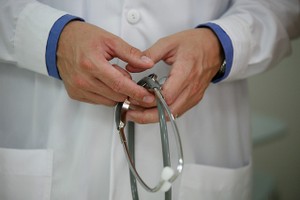Think you might have adult ADHD? Could undiagnosed ADHD explain some of the problems you have at work or with personal relationships?
Well, it’s certainly possible - roughly 60% of children with ADHD grow into adults with ADHD, and since many children never get diagnosed – many grow into adults who also have undiagnosed and un-treated ADHD (a 2008 study in World Psychology indicated that only 11% of adults with ADHD receive any appropriate treatment).1
Unfortunately, getting a diagnosis once in adulthood isn’t a straightforward process, but although you may have to jump through a few hoops to get diagnosed, if you do have ADHD then a diagnosis opens the door to effective treatments that can really help you to achieve your full potential – so though getting a diagnosis isn't easy, it’s very worth trying for.
How do you know if you might have undiagnosed adult ADD or ADHD? Click here to learn about the warning signs and symptoms of undiagnosed adult ADD and ADHD.
Getting Diagnosed with Adult ADHD
It’s easy to recognize a child who can’t sit still in class, but since most adults get a handle on the hyperactivity part of the disorder, adult ADHD symptoms aren’t so easy to interpret or understand.
And to make matters worse, once in adulthood, there’s no single test or exam you can take that will provide you with a concrete diagnosis. So to make a diagnosis a doctor must first look at factors that would rule out ADHD and if nothing is found, look at how much past and present evidence indicates current ADHD.
Before a doctor can start evaluating for a diagnosis of ADHD she must:
- Confirm that symptoms originated in childhood, by the age of 7*, and have persisted since then. (*Some experts argue that symptoms musty only originate before the age of 12, not 7.)
- Rule out other explanations for the symptoms, such as other
mental health problems like anxiety or mood disorders, physical health problems
that might point at another diagnosis or the use of illicit drugs or
medications that can cause similar symptoms.2
To make a diagnosis, your doctor may then want to:
- Ask you questions about your ADHD symptoms and about how these symptoms cause you distress or problems in life. Your doctor may also want to interview a loved one to get a secondary perspective on your symptoms.
- Ask you to take psychological tests.
- Ask you questions about your symptoms as a child, and perhaps ask someone who knew you as a child, like one of your parents or an old teacher, similar questions about your behaviors at a young age.
- Look at outside documents which may confirm a history of impairment, such as criminal history, driving records, employment records, financial records etc.
- Give you a medical exam to really rule out physical health problems that could explain symptoms.3
- References
Page last updated Dec 21, 2012


